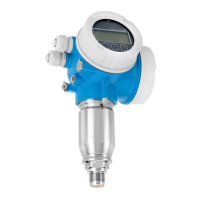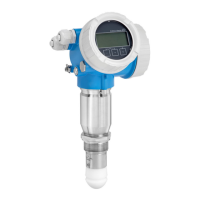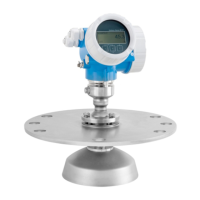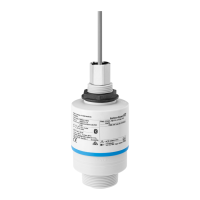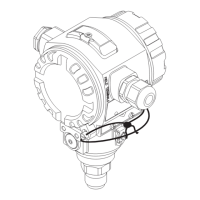Basic safety instructions Micropilot FMR10
6 Endress+Hauser
The operating personnel must fulfill the following requirements:
‣
Personnel are instructed and authorized according to the requirements of the task by the
facility's owner-operator.
‣
Personnel follow the instructions in this manual.
2.2 Designated use
Application and media
The measuring device described in these Operating Instructions is intended for continuous,
non-contact level measurement in liquids. Because of its operating frequency of approx.
26 GHz, a maximum radiated pulsed power of 5.7 mW and an average power output of
0.015 mW, use outside of closed, metallic vessels is also permitted. If operated outside of
closed vessels, the device must be mounted in accordance with the instructions in the
"Installation" section. Operation of the devices does not pose a risk to health or the
environment.
If the limit values specified in the "Technical data" and the conditions listed in the instructions
and additional documentation are observed, the measuring device may be used for the
following measurements only:
‣
Measured process variables: distance
‣
Calculated process variables: volume or mass in vessels of any shape; flow through
measuring weirs or channels (calculated from the level by the linearization functionality)
To ensure that the measuring device remains in proper condition for the operation time:
‣
Use the measuring device only for media to which the process-wetted materials have an
adequate level of resistance.
‣
Observe the limit values (see "Technical data").
Incorrect use
The manufacturer is not liable for damage caused by improper or non-designated use.
Verification for borderline cases:
‣
With regard to special media and media used for cleaning, please contact the
manufacturer. Endress+Hauser will be happy to assist in clarifying the corrosion-resistant
properties of wetted materials but does not accept any warranty or liability.
Residual risks
Due to heat transfer from the process as well as power dissipation within the electronics, the
temperature of the electronics housing and the assemblies contained therein may rise to
80 °C (176 °F) during operation. When in operation, the sensor can reach a temperature close
to the medium temperature.
Danger of burns from contact with surfaces!
‣
In the event of elevated fluid temperatures, ensure protection against contact to prevent
burns.
2.3 Workplace safety
For work on and with the device:
‣
Wear the required personal protective equipment according to federal/national
regulations.
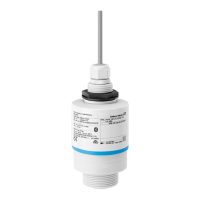
